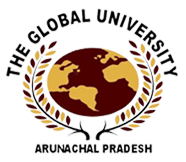Post Graduation Diploma in Remote Sensing Technology
Your Pathway to Expertise in Geospatial Data and Technology
About the Course
The Post Graduation Diploma in Remote Sensing Technology at The Global University is a 1-year program designed to provide students with specialized knowledge and practical skills in the field of remote sensing and geospatial technologies. This program explores the use of satellite and aerial data to analyze and monitor the Earth’s surface, enabling students to work in various sectors such as environmental monitoring, disaster management, agriculture, urban planning, and resource management. With a focus on cutting-edge technologies and real-world applications, this program equips students to meet the growing demand for skilled professionals in the geospatial industry.
Course Highlights
- Duration: 1 Year
- Eligibility Criteria:
To be eligible for the Post Graduation Diploma in Remote Sensing Technology program, candidates must meet the following criteria:
- Must have a Bachelor’s degree in Science, Engineering, Geography, or any related discipline from a recognized university.
- A minimum of 50% marks (or equivalent grade) in the undergraduate program is required.
- Preference will be given to candidates with a background in environmental science, geography, or engineering.
- Valid certificates of passing the examination and aggregate scores must be provided.
- Mode of Study: Full-Time
- Accreditation: Recognized by relevant academic and professional bodies in the field of geospatial technology.
Key Subjects Covered
- Introduction to Remote Sensing: Basics of remote sensing, its history, types of sensors, and applications in various fields.
- Satellite and Aerial Remote Sensing: Understanding the working principles of satellite and aerial sensors, including multi-spectral, hyperspectral, and radar imaging technologies.
- Remote Sensing Data Acquisition and Processing: Techniques for acquiring, processing, and analyzing remote sensing data, including image processing software tools and GIS integration.
- Geospatial Data and Cartography: Introduction to Geographic Information Systems (GIS), mapping, and spatial analysis using remote sensing data.
- Digital Image Processing: Techniques for image enhancement, classification, and analysis of remote sensing imagery.
- Applications of Remote Sensing: Applications in various fields such as agriculture, forestry, water resources management, land use planning, environmental monitoring, and disaster management.
- Geospatial Data Analysis and Modeling: Understanding and applying statistical and computational models to analyze geospatial data for decision-making.
- Global Navigation Satellite Systems (GNSS): An overview of GNSS technology and its role in positioning and navigation in remote sensing.
- Environmental Monitoring and Assessment: Using remote sensing data to monitor environmental changes, including deforestation, urbanization, and natural hazards.
- Remote Sensing in Disaster Management: Understanding how remote sensing helps in disaster prediction, monitoring, and mitigation efforts.
- Research Methodology in Remote Sensing: Training in research techniques specific to remote sensing projects, including data collection, research design, and scientific reporting.
Why Choose The Global University for Post Graduation Diploma in Remote Sensing Technology?
- Comprehensive Curriculum: In-depth training in remote sensing technologies, applications, and software tools, preparing students to tackle real-world challenges.
- Experienced Faculty: Learn from experienced professionals and researchers with extensive knowledge in remote sensing, geospatial technologies, and environmental sciences.
- State-of-the-Art Facilities: Access to the latest remote sensing software, satellite data, and GIS tools for practical learning and research.
- Hands-on Training: Practical exposure to industry-standard tools, techniques, and data analysis processes for real-world remote sensing applications.
- Industry-Relevant Curriculum: The program is aligned with industry requirements, providing skills that are in high demand across multiple sectors, including government, private organizations, and research institutions.
- Global Networking Opportunities: Opportunities to connect with professionals, researchers, and organizations worldwide through conferences, workshops, and research collaborations.
- Career Support: Placement assistance and career counseling to help students find rewarding roles in the growing field of remote sensing and geospatial technologies.
Career Opportunities
Graduates of the Post Graduation Diploma in Remote Sensing Technology program can pursue various careers, such as:
- Remote Sensing Analyst
- GIS Specialist
- Geospatial Data Scientist
- Environmental Consultant
- Agricultural Remote Sensing Specialist
- Disaster Management Specialist
- Urban Planner
- Satellite Data Analyst
- Remote Sensing Technician
- Researcher in Remote Sensing and Geospatial Technology
- Climate Change Analyst
- Cartographer
- Project Manager in Geospatial and Environmental Projects
How to Apply
- Visit our Apply Now page.
- Complete the online application form and upload the required documents.
- Submit valid certificates and proof of eligibility.
Contact Us
Write Us: info@tgu.ac.in
Website: www.tgu.ac.in
